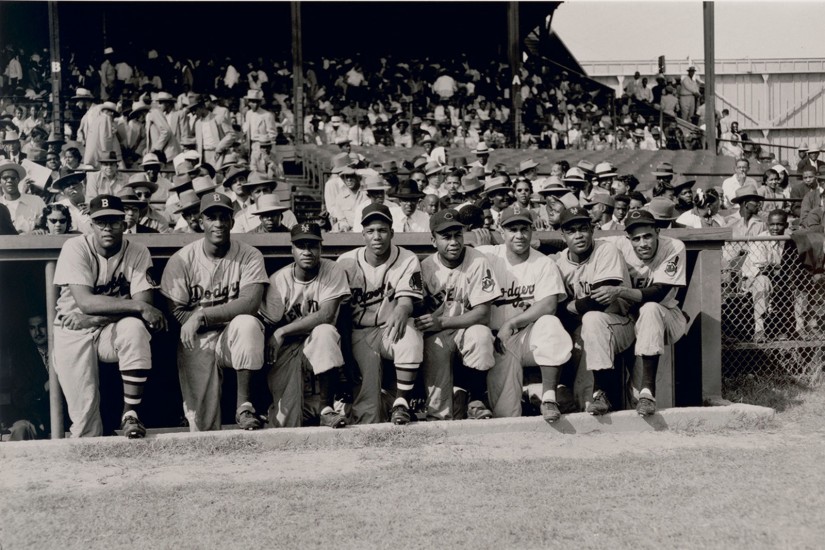One definition of integration would be the point at which black players no longer had to be exceptional to survive; when players whose performance was close to that of an average (white) player were allowed to remain in the big leagues; when MLB finally had black journeymen. This would be a more accurate picture of a player whose presence truly represented a broader racial inclusion, rather than exceptional talent alone.
The list of the first black Major League players is littered with Hall of Famers like Jackie Robinson, Larry Doby, Roy Campanella, Willie Mays, Satchel Paige, and Monte Irvin, and stars like Minnie Miñoso (a nine-time All-Star) and Don Newcombe (one of only two players in history to win an MVP, a Cy Young, and a Rookie of the Year award), alongside washouts who were given only the shortest chance to succeed. It was not until the mid-1950s that the first players emerge who fit into neither category. Two players in particular, Harry Simpson and Bob Boyd, accomplished the outstanding feat of having relatively long careers (880 and 696 games, respectively) despite being black and, statistically, only average ballplayers. These two men had different career paths, but both displayed resilience and achieved their own type of remarkable success that deserves to be celebrated alongside other pioneers like Robinson.
In 1949, a scout labeled a young outfielder and first baseman named Harry “Suitcase” Simpson—then with the Philadelphia Stars of the Negro National League—“the tan Ted Williams.” Lean and nimble, with a smooth swing, Simpson had up-and-down success in the Negro leagues but impressed enough to be offered a tryout for MLB teams. On April 21, 1951, the fourth game of the 1951 season, the 25-year-old Simpson made his major-league debut for the Cleveland Indians, entering as a pinch-hitter in the bottom of the eighth, making him the 16th black player in Major League Baseball. This would begin an eight-year, five-team, almost 900-game career in which Harry Simpson achieved the incredible: he built a career as a black man in Major League Baseball despite almost never being better than a serviceable starter.
